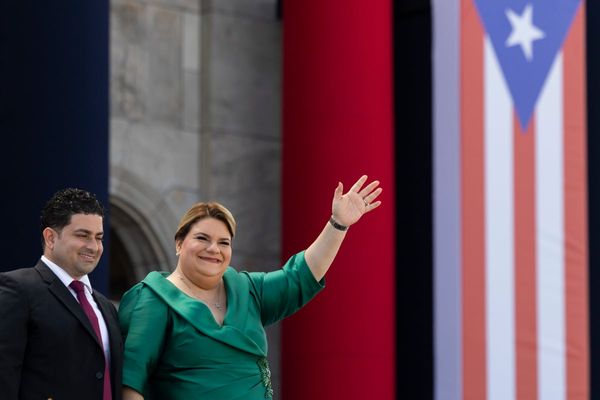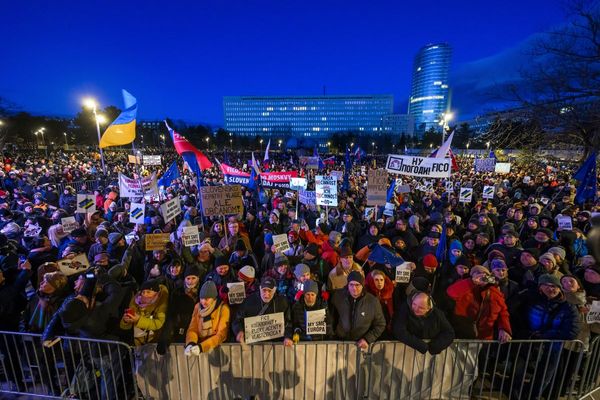"This needs to be over."
Yeah, Rob. Like three weeks ago.
Maybe you're not a fan of commissioner Rob Manfred, and where baseball is headed under his rocky stewardship, but we can all agree on that much.
Enough already. Uncle. Tap us out.
Because Manfred giving that exasperated line Thursday to MLB Network's Jon Heyman speaks for all of us _ and we got to skip the round-trip flight to Phoenix for what apparently was a very confusing Tuesday night summit with union chief Tony Clark. Manfred left Arizona believing he had the "framework" of an agreement for a 60-game season. Said as much in a public statement.
And yet despite Manfred spending several hours meeting with Clark, going over every detail on the return-to-play checklist, the two people in the room walked out with entirely different accounts of what went down.
How does this keep happening?
"In my discussions with Rob in Arizona we explored a potential pro-rata framework, but I made clear repeatedly in that meeting and after it that there were a number of significant issues with what he proposed, in particular the number of games," Clark said Thursday in a statement. "It is unequivocally false to suggest that any tentative agreement or other agreement was reached in that meeting. In fact, in conversations within the last 24 hours, Rob invited a counterproposal for more games that he would take back to the owners. We submitted that counterproposal today."
The 70 games was predictable, and the rest wasn't all that different from what the owners already had presented: 16-team expanded playoffs through 2021, universal DH through 2021, permission to sell advertising on uniforms, some relief from the $170-million advance, a $50 million take from the postseason pool. The players also threw in the additional sweetener of a 50/50 TV revenue split from the extra rounds of next year's playoffs, which is definitely a bridge too far for the owners..
"We believe this offer represents the basis for an agreement on resumption of play," Clark said.
The owners, of course, don't share that sentiment, not after Manfred had sold them on 60 games. And now we're back to playing the feud again.
This was meant to be a negotiation to get baseball back on the field, as soon as it could be done safely, during a global pandemic. Instead, we're ripping open the CBA, almost two years early, which is not something to be done on the fly, with a clock ticking loudly in the background. Those negotiations take months, and also have the luxury of the offseason to do the heavy lifting. Right now, the two sides are supposed to be coming up with a system to pay the players fair compensation while figuring out a way to follow secure medical protocols for as many games as possible.
Instead, the players and owners are chewing up all this time firing offers back and forth at each other. We're now into the fifth week of this soul-crushing process. If we ever do get an agreement, or Manfred simply chooses to implement a schedule on his own, the regular season is only going to last roughly nine weeks. The Players Association suggested July 19 through Sept. 30 _ only three days longer than MLB's preferred finish.
What ever happened to Clark's rallying cry of "tell us when and where?" Earlier this week, players from Mike Trout to Bryce Harper to Gerrit Cole had been using the #whenandwhere hashtag on Twitter in a show of solidarity, presumably to force the owners' collective hand. It was meant as a challenge to Manfred, who has the power to craft a season independent of the union's approval.
But Manfred retreated, saying he was fearful the union was plotting a $1 billion grievance, and requested Tuesday's visit with Clark for some face-to-face negotiating. If nothing else, Manfred flying to Phoenix for that sitdown would seem to satisfy the minimum legal standard for good-faith negotiating tactics. And if that's the case, it could clear Manfred to go ahead with his own schedule, if these talks collapse again.
Right this minute, Manfred doesn't want to go that route. The owners still have too much to gain financially with an agreement. They don't get those lucrative expanded playoffs without a deal. But this also can't drag on much longer.
Once a plan is put in place, teams likely will need a week to 10 days to report to their spring training sites, followed by another three weeks of workouts. That starts to push Opening Day later into July and further squeezes the regular season. Even if the two sides settle on a 65-game schedule, they'll have to cram that into 70 days.
Maybe the players will look more like NASCAR drivers when we see them next, but that's fine. Just as long as we don't have to hear another word about pro rata salaries again.







